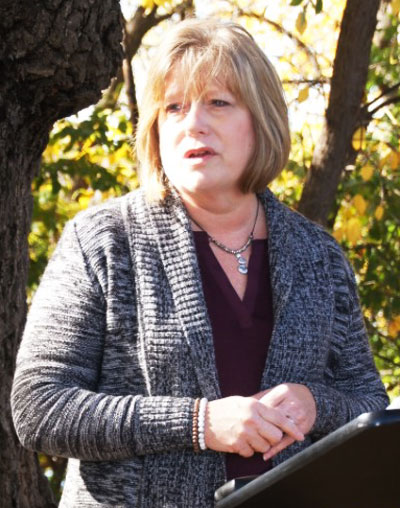In a world of division, disability services transcend partisanship
With election day behind us and some results still being tabulated, I’m reflecting on the nonpartisan nature of our cause of supporting people with disabilities.
So many issues have become increasingly polarizing in our country, but we continually find strong supporters for what we do on both sides of the aisle.
I think one of the reasons for this is that our legislators understand that a large part of our work centers around ensuring people with disabilities are included in the wider community. When people from all walks of life are included – in the workforce, in schools, in places of worship, in community events – it makes our entire society better.
All communities have people we support
Another reason may be because all communities have members with disabilities. Everyone knows someone with some type of disability, regardless of their race, their faith, or their political leanings. Perhaps it is easier for legislators to understand the need for providers who support these individuals, compared to some of the other topics on which they have to vote.
This bipartisan backing was on full display when our bill for emergency funding was supported by all but one vote during one of the special sessions – one where no other funding was approved.
Now that we are close to knowing all the members of our next state legislature, our work should turn from the grassroot efforts to receive emergency funding to building and cultivating relationships with our senators and representatives. Make no mistake – there will be more challenges to our services in the coming year. It is imperative that we find additional supporters who truly understand the complex details of our service models, the state’s rate setting methodology, and how much the people in our programs depend on us to be here for the long run.
Relationships need nurturing
No matter what a state senator or representative’s party affiliation, it’s essential that we form and nurture a relationship. Our leaders need to be aware of what’s happening in our communities where people with disabilities live and work. This takes effort, purpose and drive. We have to be intentional, persistent, friendly, helpful, and consistent so when it comes time to vote, leaders will remember us, and represent us well.
So, some “how to” ideas and reminders for providers, family members and advocates:
• Host a welcome event with your newly elected state legislator to introduce him or her to your family, group of families, or agency.
• Be open, share financial data, needs and policy struggles - many legislators are unaware of these details.
• Practice kindness and grace in these interactions - it can go a long way.
• Welcome questions. For those you can’t answer, follow up later with the info.
• Serve refreshments – cookies, punch and coffee can make leaders feel at home.
• Give leaders the benefit of the doubt, don’t assume the worst if they’re not in your party.
• Know that everyone is not at the same place as you, and that educating someone can require a lot of patience.
• You are an “expert” on disability issues compared to most people, and you want to bring legislators along and make them experts too.
• Lastly, be available to take their call, respond to their emails or texts - be a valuable resource to your legislators.
Don’t underestimate your level of knowledge and ability to influence the priorities of your legislators. This is the essence of representative government. Your efforts can help Minnesota continue its long tradition of investment in robust disability services and help give all citizens opportunities to pursue their goals and dreams.
Thank you for your commitment to serving others and making their lives the best they can be.
This email address is being protected from spambots. You need JavaScript enabled to view it.
President
MOHR